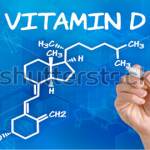So how long does the small, protective effect of vitamin D last? Or as our patients often ask, “Do I have to take this for the rest of my life?” Data show that the answer is yes. “After you stop taking it, the effect dissipates pretty quickly unfortunately,” she said.5
As with all studies, there are limitations. Dr. Costenbader explained, “Since this was just one big trial, it can’t answer all the questions we have about vitamin D for our diseases. This wasn’t a high-risk or vitamin D deficient population, where the effect may be even greater. We only studied older adults (men 50 years of age or older and women 55 years of age or older), so the effect in younger populations remains to be proven. And, we did have difficulty confirming incident autoimmune thyroid disease in particular since this diagnosis is often made without testing for autoantibodies.”
As for strengths, Dr. Costenbader noted, “This was the first large, nationwide, double-blind randomized controlled trial for the prevention of autoimmune disease in the general population. Vitamin D is a well-tolerated, non-toxic supplement, and nothing else has been shown to reduce the overall incidence of autoimmune disease yet. It was safe without an increase in adverse events, and two-year extension assessed prolonged effects. I think it has high clinical importance.”
Treatment Effects in Rheumatic Disease
Some recent meta-analyses speak to the potential effect of vitamin D supplementation in RA and SLE.6,7 Varying doses and durations of vitamin D supplementation have been tested. “There were no strong or consistent effects observed, though there may possibly be small benefits on pain and DAS-CRP. The evidence isn’t strong,” Dr. Costenbader said.
Conclusion
To summarize, vitamin D deficiency is very common in most all inflammatory conditions. Long-term use of vitamin D3 2,000 IU daily was safe and reduced the incidence of all autoimmune diseases by 22% after two to three years, but the effect dissipates quickly after cessation of vitamin D.4 Varying doses and durations of vitamin D have been tested for the treatment of SLE and RA, but no strong or consistent effect has been observed. And last but not least, supplementation for patients with vitamin D deficiency to prevent bone loss is still recommended.
A sidebar by Physician Editor Bharat Kumar, MD, MME, FACP, FAAAAI, RhMSUS
Calcium Absorption
Sylvia Christakos, PhD, professor in the Department of Biochemistry and Molecular Biology, Rutgers New Jersey Medical School, Newark, discussed calcium absorption and homeostasis in the aging individual. She noted that in mouse models, vitamin D receptor (VDR)–knockout mice developed hypocalcemia and rickets, but when given a rescue diet high in calcium, rickets can be prevented. This suggests that the decreased effect of vitamin D (and its active form, 1,25-dihydroxy-vitamin D) is largely in the absorption of calcium for the gut.


